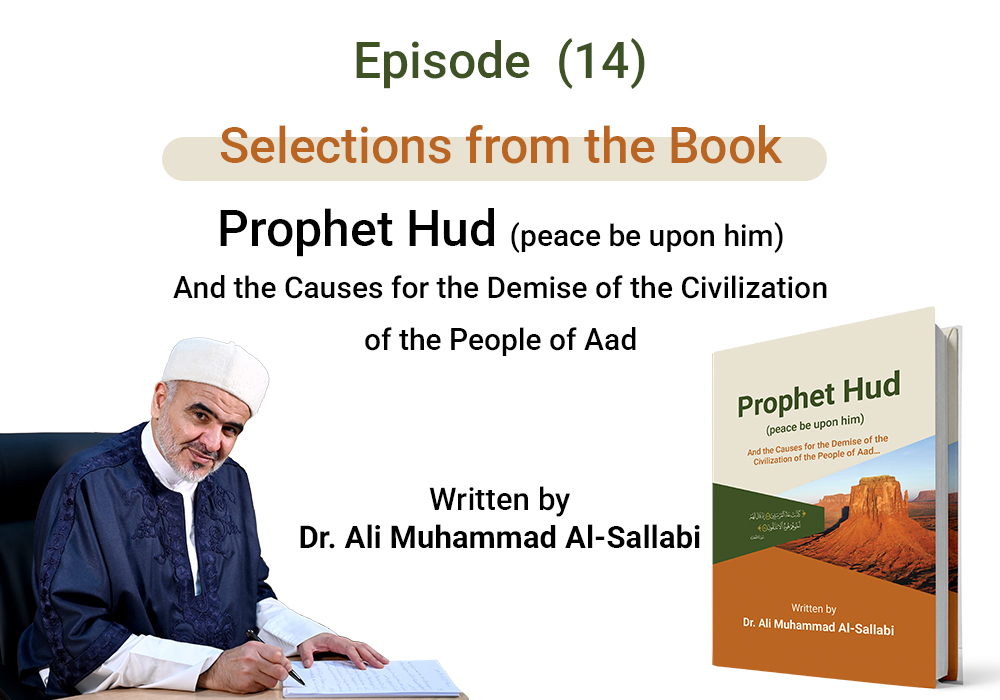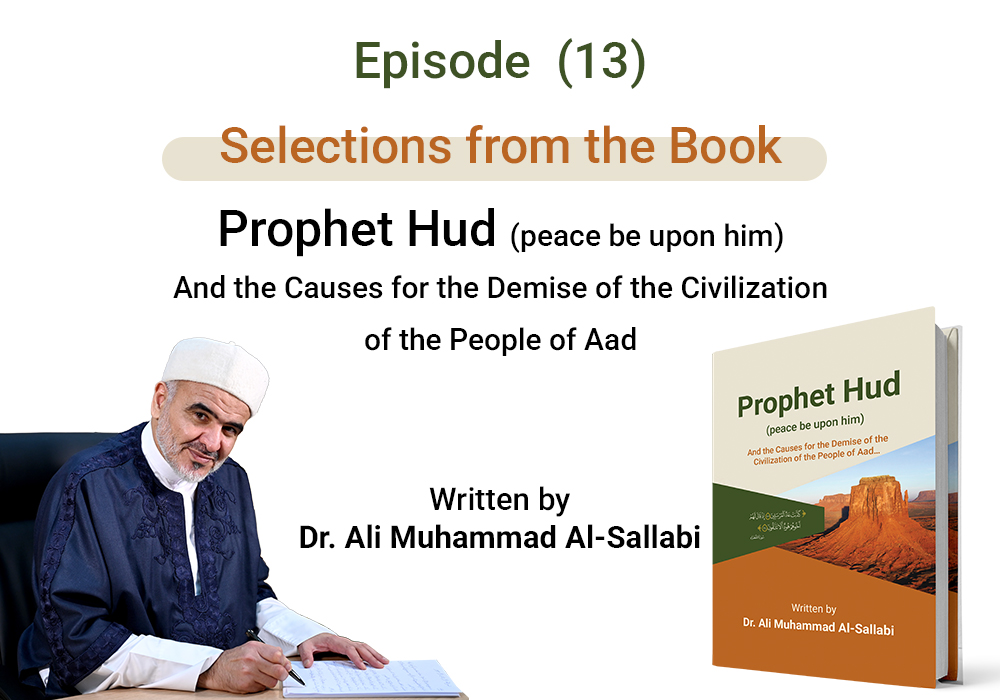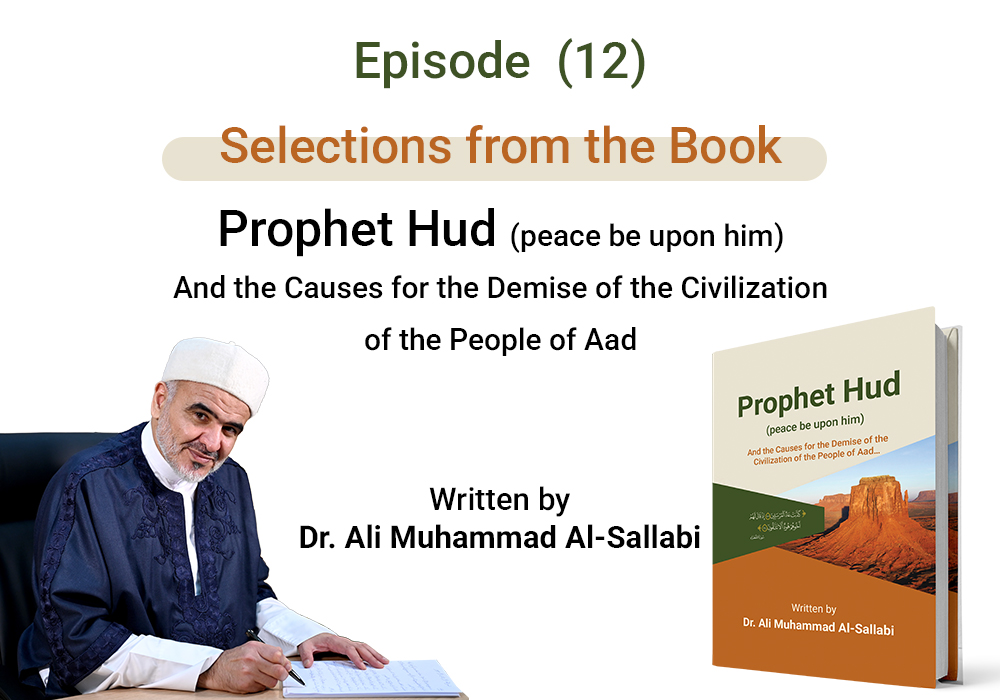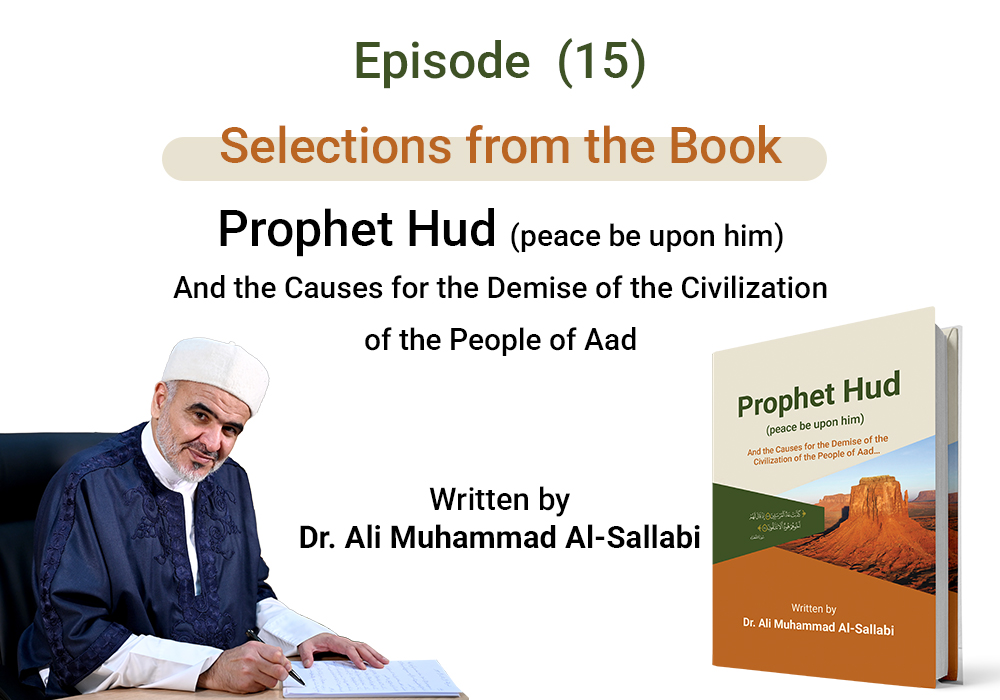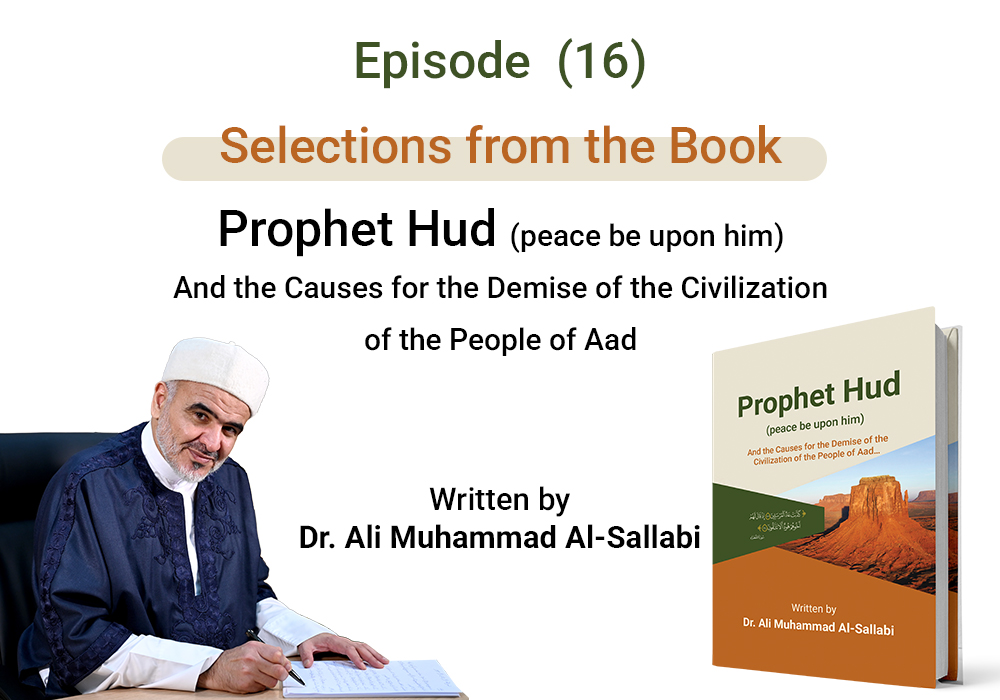The Difference Between Worship and Piety
Selections from the Book Prophet Hud (peace be upon him) And the Causes for the Demise of the Civilization of the People of Aad…
Written by Dr. Ali Muhammad al-Sallabi...
Episode (14)
From what has been discussed, we realize the importance of piety, its great status, and its high rank. We understand that piety is a ripe fruit that must be achieved through five things: faith, obedience, leaving sins, repentance, and sincerity. If one of these five elements is missing, piety will not exist.
From this, we know that piety is not merely worship, as many people think. There may be a worshiper whose worship is abundant, but it does not elevate him to the level of piety. There are many proofs and clear arguments in the Holy Qur’an and Sunnah regarding what I have explained. Allah says: {And [We sent] Abraham, when he said to his people, "Worship Allah and fear Him. That is best for you, if you should know.} [Al-'Ankabut: 16].
- {Worship Allah}: Worshiping Allah alone without associating any partners with Him. Worshiping Allah alone is a complete way of life that includes the human understanding of the reality of divinity, the reality of servitude, the relationship between the Creator and creation, and the reality of power and values in the universe and in the lives of people... From this, a system of life for humanity emerges, based on this understanding. It becomes a special way of life, a divine method that is based on the truth of the connection between servitude and divinity, and the values that Allah establishes for the living and the things.
Worship is a comprehensive term for all that Allah loves and is pleased with, whether in words or deeds, both inward and outward. Prayer, zakat, fasting, pilgrimage, truthfulness, fulfilling trusts, honoring parents, maintaining family ties, fulfilling promises, enjoining what is good, forbidding what is wrong, striving against disbelievers and hypocrites, doing good to neighbors, orphans, the poor, travelers, servants, animals, supplication, remembrance, reading, and similar acts of worship. Similarly, loving Allah and His Messenger, fearing Allah, turning to Him in repentance, sincerity in the religion for Him, patience in His judgment, gratitude for His blessings, contentment with His decree, relying on Him, hoping for His mercy, and fearing His punishment—these are all acts of worship to Allah.
With this comprehensive definition, nothing from human activities and deeds can be excluded, whether it is in pure acts of worship, permissible transactions, or the habits that humans are naturally inclined to perform.
All of religion falls under worship. The method of Allah came to encompass all of life and organize all its affairs, from manners of eating, drinking, relieving oneself, to state-building, financial policies, matters of transactions and punishments, and the foundations of international relations in both peace and war.
The acts of worship such as prayer, fasting, and zakat have their significance and status, but they are not the entirety of worship. They are part of the worship that Allah desires. The essence of the worship required from a Muslim is to align his words, actions, dealings, behavior, and relationships with people according to the guidelines and principles brought by Islamic Sharia, doing so in obedience to Allah and submission to His command.
The evidence for the comprehensive concept of worship in the Holy Quran, the Sunnah, and the actions of the Companions (may Allah be pleased with them) is as follows: As for the Quran, Allah says: {And I did not create the jinn and mankind except to worship Me.} [Adh-Dhariyat: 56]. He also says: {Say, "Indeed, my prayer, my rites of sacrifice, my living and my dying are for Allah, Lord of the worlds. (162) No partner has He. And this I have been commanded, and I am the first [among you] of the Muslims." (163)} [Al-An'am: 162-163].
The Prophet (peace and blessings be upon him) said: "Every bone of men’s fingers and toes must give sadaqa every day the sun rises. If one gives justice between two men it is sadaqa; if one helps a man with his beast, loading or lifting* his goods on it, it is sadaqa; a good word is sadaqa; every step one takes towards prayer is sadaqa; and if anyone removes anything injurious from the road it is sadaqa."
As for the evidence from the actions of the predecessors and their understanding, it is narrated in Sahih al-Bukhari from Abu Burda in the story of sending Abu Musa and Mu'adh to Yemen. Abu Musa asked Mu'adh: "How do you pray, O Mu'adh?" He replied: "I sleep early at night, then I wake up after completing my sleep, and I recite what Allah has written for me. I consider my sleep as a reward, just as I consider my waking."
In the words of Mu'adh (may Allah be pleased with him), there is evidence that permissible actions are rewarded based on intention and purpose.
- {and fear Him.}: The fear of Allah is the true guarantee for people's adherence to the right path, preventing them from deviating from it here or there, avoiding tricks or distortions in its implementation. It is also the source of noble character, directed towards Allah, without hypocrisy, pretense, or argumentation.
All the prophets called to the worship of Allah and the fear of Allah, including Hud (peace be upon him). The noble verses clarify that there is a difference between worship and fear. Many worshipers’ acts of worship do not elevate them to the rank of piety. Thus, these key principles called by Hud (peace be upon him) are the essence of Allah’s message in every generation, as Allah said: {worship Allah; you have no deity other than Him. Then will you not fear Him?"}; Worship without piety is not accepted because Allah Almighty said: {"Indeed, Allah only accepts from the righteous [who fear Him].} [Al-Ma'idah: 27].
- Ali Muhammad al-Sallabi, Prophet Hud (peace be upon him) And the Causes for the Demise of the Civilization of the People of Aad, pp. 241-245.
- Noah, peace be upon him, and the Great Flood, p. 139.
- Moderation in the Holy Qur’an, p. 363.
- Al-Bukhari, Book of Military Expeditions, No. 4342.
- Al-Bukhari, Book of Jihad and Military Expeditions, Chapter on the one who takes hold of the stirrup and the like, No. 2767.
- voluntary charity or acts of kindness done for the sake of Allah, distinct from the mandatory charity of Zakat.
- The Objectives of Those Who Are Charged with Worshipping the Lord of the Worlds, Omar Al-Ashqar, Al-Falah Library, First Edition, 1981 AD, pp. 46-47.
For further information and review of the sources for the article, see:
The Book of Prophet Hud (peace be upon him) And the Causes for the Demise of the Civilization of the People of Aad on the official website of Sheikh Dr. Ali Muhammad al-Sallabi:


